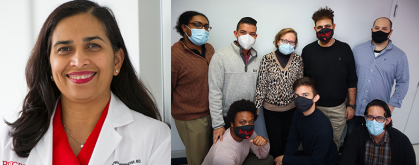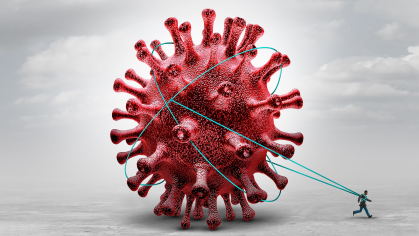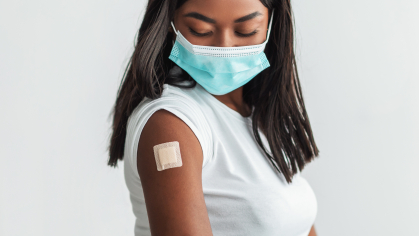Rutgers Begins COVID-19 Prevalence Study in Newark
Researchers recruit participants to foster relationships in the community and better understand pandemic’s impact
Rutgers will help determine the prevalence of the coronavirus in Newark, one of the cities hardest hit by the pandemic, as part of the National Institutes of Health COVID-19 Prevention Network (CoVPN) response to the deadly global outbreak.
The university is one of 26 sites in the country chosen by the agency’s National Institute of Allergy and Infectious Diseases to conduct community seroprevalence studies.
“There are still so many questions unanswered and things we have to discover in real time in relation to this pandemic,” said Shobha Swaminathan, clinical research site leader, Rutgers Research with a Heart and associate professor at the Rutgers New Jersey Medical School who will lead the study in Newark. Given that COVID-19 causes a lot of asymptomatic infections, this study will help us to better understand how the virus has impacted our community.”
Swaminathan, who also led the Moderna clinical trials at Rutgers NJMS, said the Community Prevalence of SARS-CoV-2 Study (COMPASS), will provide necessary data.

Recruiting of adults and children for the study is underway at outpatient medical clinics and will continue at local venues, nursing homes and assisted living facilities through the summer with researchers seeking to better understand:
- The frequency of current and prior COVID-19 infections in the community
- The frequency of infection among children
- The medical, demographic and social risk factors associated with infection and disease
- The attitudes about and uptake of public health measures to reduce the spread of infection
“The COMPASS study will not only get our team back out in the field to engage safely with our local communities but it will also provide another avenue for COVID-19 testing and education and provide information on local resources,” said Christie Lyn Costanza, associate director clinical research operations at Rutgers NJMS.
Eligible volunteers will have one study visit that takes about an hour and will be asked to complete a brief survey, provide a small blood sample and have a nasal swab to test for COVID-19. No medicine or vaccine will be given to people who participate in the study. Volunteers will be notified of the results of their COVID-19 test and will be compensated for their time.
Researchers are excited to continue building community partnerships not only for the COMPASS study, but to better understand the community’s needs with relation to the pandemic. To learn more about the COMPASS study, visit this website.


